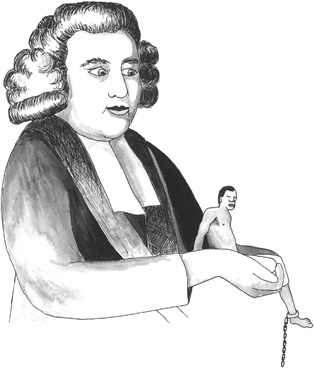
AMAZING grace, how sweet the sound
That saved a wretch like me!
I once was lost, but now
I’m found, Was blind, but now I see.
’Twas grace that taught my heart to fear,
And grace my fear relieved;
How precious did that grace appear,
The hour I first believed!
Through many dangers, toils and snares,
I have already come;
’Tis grace that brought me safe thus far,
And grace will lead me home.
The Lord has promised good to me,
His Word my hope secures;
He will my shield and portion be,
As long as life endures.
Yes, when this heart and flesh shall fail,
And mortal life shall cease,
I shall possess, within the veil,
A life of health and peace.
The world shall soon dissolve like snow,
The sun forbear to shine;
But God, who called me here below,
Shall be forever mine.
‘Amazing Grace’ is one of the most popular and easily recognizable Christian hymns, but its strong connections with slavery are not so well known. And nor is the name of the man who wrote the lyrics.
John Newton was born in London on 24 July 1725, the son of a ship master. He first joined his father at sea in 1736, aged only eleven, his father’s plan being for the youngster to become a slave master on a plantation in the West Indies in due course. But this, like all best-laid plans, went astray a few years later when Newton was seized by a press gang and forced aboard a ship, the HMS Harwich, bound for Africa. After attempting to escape, the nineteen-year-old was clamped in irons, flogged in front of the 350-man crew and placed on a slave ship, where he was treated very harshly for the next three years. Eventually Newton was rescued by a friend of his father, who had asked him to ‘keep an eye out’ for his missing son. On the journey back to England aboard another slave ship, the Greyhound, they encountered a severe storm that nearly wrecked the vessel. During the night, as the boat’s hull filled with water, Newton prayed for salvation and the storm, which had raged for many days, finally subsided, so that the ship and its crew were saved. It was 10 March 1748, a date Newton was to celebrate for the rest of his days.
The incident changed Newton’s life, convincing him of God’s grace and turning him to Christianity (I once was lost, but now am found), and from then onwards he avoided

drinking, gambling and any form of profanity. It also changed his attitude towards the brutal slave trade; still sailing along the slave routes, he did not challenge slave trafficking – or not until many years later – but ensured that his human cargo was well treated during the voyage. When illness forced him to retire from the sea in 1754, he followed his spiritual leanings and became curator of Olney Church in Buckinghamshire. In 1772, Newton wrote ‘Amazing Grace’ about his near-death experience aboard the Greyhound and his subsequent conversion. The following year, he became rector of St Mary Woolchurch in London where, among his new congregation, he met William Wilberforce who, under the rector’s influence, was to become the driving force and leader of the movement to abolish slavery.